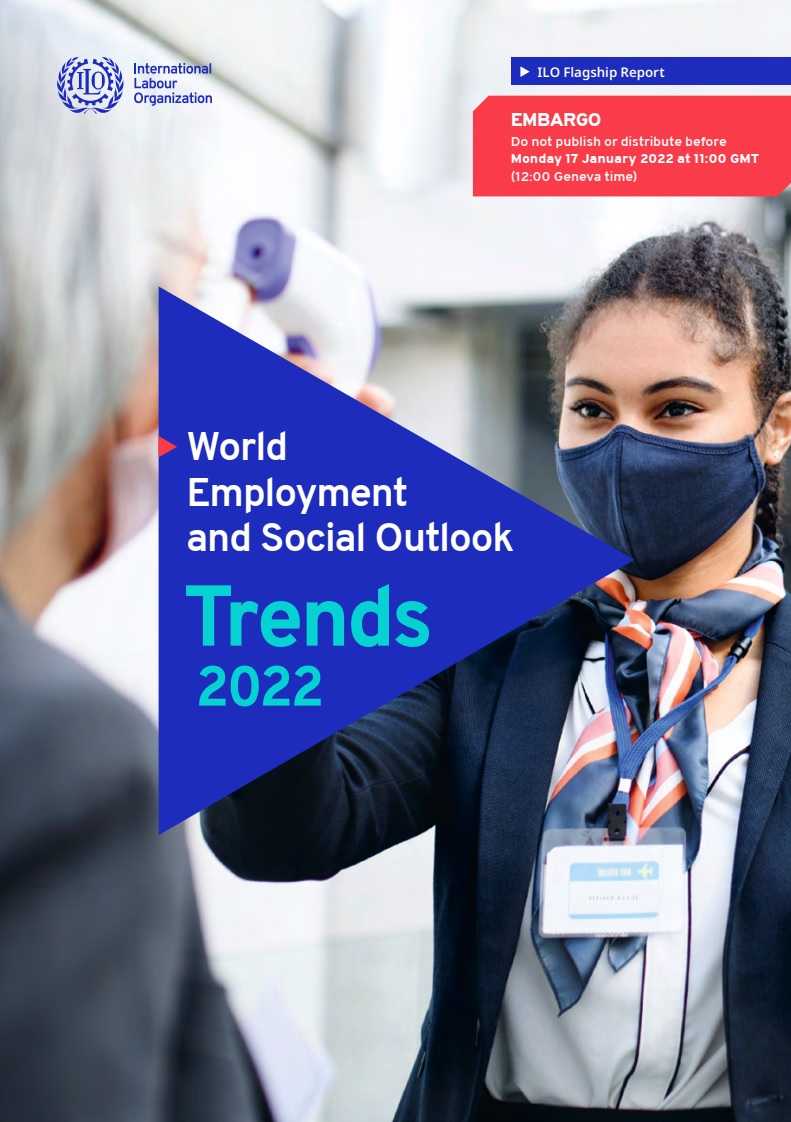
By Dr. Gyan Pathak
A two-volume new ILO research has revealed that participation of India in Global Value Chains (GVCs) has resulted into social downgrading of the workforce, chiefly due to non-integration of labour standards into trade and investment. It is just opposite our expectation, since GVCs are a prominent feature of international trade, which should have enabled social upgrading.
The Volume I of the report titled “Has Trade Led Better Jobs? Findings Based on the ILO’s Decent Work Indicators says while discussing trade and informality in global value chains that social downgrading as a result of participation in GVCs was observed in Bangladesh, India and Viet Nam, but there are also the positive examples of Brazil and South Africa, where accompanying active public policies, together with measures taken by the social partners (in particular trade unions), enabled social upgrading. The observation must be taken as an indirect indictment of India since it has so far simply failed in enabling social upgradation of its workforce. There is large gap in social security coverage, lack of decent working conditions, rising informalisation even in formal sectors, and keeping trade unions at a distance from enacting and implementing labour policies as far as possible, are among the chief evils that plaguing the country.
The apathy of the ruling establishment towards the workforce in India has also been brought in focus in the second Volume titled “The Potential of Trade and Investment Policies to Address Labour Market Issues in Supply Chains”. It says that majority of trade agreements (68 per cent) do not include labour provisions, and approximately 55 economies, including Bangladesh, India and Saudi Arabia, do not have trade agreements that include labour provisions. Not only that “countries such as Argentina, China, India and the Russian Federation rarely include labour-related keywords in their agreements.” As for India’s trade and investment, its agreements refers more generally to principles and says “may address issues such as labour” in noncommittal language.
The observations are significant at a time when ILO is pushing for social justice for entire workforce. In June 2023 ILO’s “World of Work Summit: Social Justice for All” event during annual International Labour Conference, it was underscored that international trade had undoubtedly brought about significant advancements in the world, fostering prosperity and interconnectedness. It also emphasized that concerted efforts must be made to ensure that workers and firms that have not yet reaped the benefits of trade have their fair share of them in the future.
The present ILO research has offered a framework for analyzing and taking action in a more rigorous and structured way to address the challenges regarding both quantity and quality of the jobs being generated through international trade and investment. In the aftermath of the COVID-19 pandemic and in a period characterized by geopolitical tensions, the issue has become ever more important. International trade has increased from a pandemic low of around 25 per cent of global output in 2020 to 34 per cent in 2022, which is higher than pre-pandemic levels and serves as a clear indication of trade’s resilience. These trends also carry implications for the hundreds of millions of workers whose livelihoods rely on trade-oriented industries.
Undoubtedly, trade has generated job opportunities for all skill levels in both developed and developing economies, helping to lift millions out of poverty. The evolving trade dynamics in developing and emerging economies have also resulted in notable gains in employment prospects for both young people and women. This trend has become so pronounced that women now constitute a large part of the workforce in export-oriented manufacturing industries across numerous countries.
At the same time, the research finds that the benefits of trade have not been distributed evenly, either across countries with diverse resources and capacities or across sectors with different production patterns. Even within the same sectors, firms and workers with different characteristics have seen a range of different effects, with more productive firms and more skilled workers often faring better. Thus, trade has been linked to the rise of income inequalities.
The second volume focuses on trade policies and how they have been used as a tool in their own right to address labour market challenges, especially in the area of labour rights. It delves into how trade policies can address labour market challenges, particularly structural imbalances, and looks at how integrating labour standards into trade and investment policies can balance economic and social goals.
The objective of both volumes is to better align trade and labour market policies to achieve decent work outcomes. This has implications for domestic, regional and global policy objectives, particularly in accelerating progress towards attaining the Sustainable Development Agenda – notably Sustainable Development Goal (SDG) 8 (Promote sustained, inclusive and sustainable economic growth, full and productive employment and decent work for all).
This is all the more important today as trade is undergoing a transformational process. The move towards regionalization and more resilient GSCs, and the change in the composition of trade fuelled by digitalization and climate change, are emerging trends with vast implications for the world of work. Thus, related policies must be transformational as well. (IPA Service)
The post New ILO Research Found Social Downgrading Of Workforce In India first appeared on Latest India news, analysis and reports on IPA Newspack.


